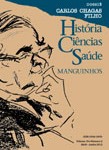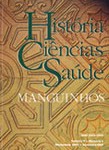October 21th, 2023
In the editor’s letter of the new batch of articles of the 2024 edition of HCS-Manguinhos, scientific editor Marcos Cueto outlines the main activities undertaken by the journal’s team in the previous year.
The whole year was devoted to adapting to the new continuous publication format. It means that all the texts are now published in a single volume rather than in separate issues every quarter, as had been the case until 2022. Last year was also marked by an intensification of the journal’s internationalization process. By the end of 2023, HCS-Manguinhos’ had published 69 texts (counting all the sections except the letters from the editor), 18 of which were in two languages, with some crucial contributions by authors from abroad, notably Portugal, Spain, and Argentina, as well as, to a lesser extent, other countries in Latin America, the United States, France, the United Kingdom, China, and Singapore.
This continued internationalization of História, Ciências, Saúde – Manguinhos can also be seen in the number of submissions received from authors from different countries, led by Portugal, Spain, and Argentina, even if the majority of the manuscripts still came from Brazil. This internationalization also spread to the peer review process, as most of the manuscripts were reviewed by at least one non-Brazilian scholar with specialized knowledge in the subject matter.
In 2023, the journal published two supplements. The first, “Covid-19 in Latin America: conflicts, resistance, and inequalities,” had four guest editors: Claudia Agostoni from the National Autonomous University of Mexico, Karina Ramacciotti from the National University of Quilmes, and Carlos Henrique Paiva and Marcos Cueto, both from Casa de Oswaldo Cruz/Fiocruz. The articles analyzed the deficiencies in the official responses to the COVID-19 pandemic, including debates about social inequality and the resilience of health workers. “Heritage and Territory in Manguinhos” was the second supplement. Edited by Renato da Gama-Rosa Costa and Inês El-Jaick Andrade, researchers from the Department of Historical Heritage at Casa de Oswaldo Cruz, the supplement analyzed changes to the main Fiocruz campus.
As Marcos Cueto emphasizes, HCS-Manguinhos retains its commitment to publishing according to the precepts of open science. This implies changing the editorial process, such as accepting manuscripts previously published on preprint servers.
“Unfortunately, most historians, journal editors included, are of the mind that preprints divulge unfinished research, challenge the unpublished status of journal articles, compromise the impartiality of the review process, and disclose research findings in a pace that is still foreign to the discipline. We would argue that editors should value and encourage the preprint format: not only does it shorten the time between the research per se and the communication of its findings to the public, but preprints have the potential to stimulate debate, says the letter“
Read the full letter








